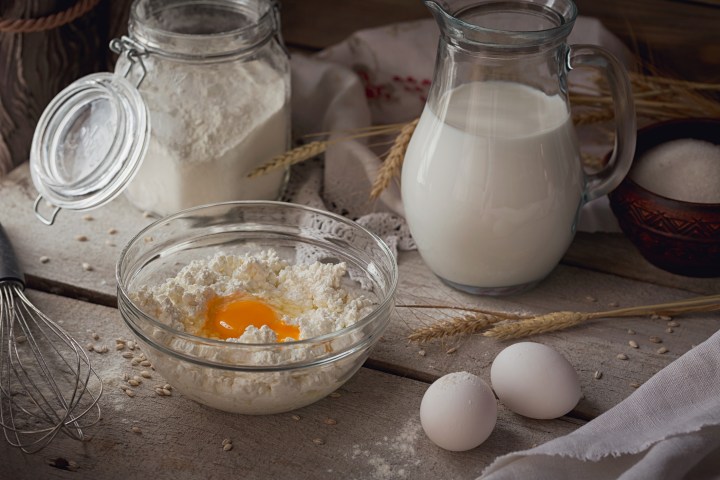Sugar free baking

If you think that going sugar-free means no more baked goods, think again! You can still eat delicious sweet treats thanks to a wonderful naturally occurring sweetener by the name of Xylitol…
As explained below by an expert (Murray Hawkins BDS, DGPRCS UK), there are a number of healthy and low calorie natural sugar substitutes on the market. All have their advantages but xylitol is the best choice for three main reasons.
- Baking with it is very easy
- It’s beneficial to your teeth
- It’s suitable for diabetics
Xylitol is a naturally occurring sweetener derived from wood or maize. It has been shown to confer significant oral health benefits. Whereas sucrose consumption leads to tooth decay, xylitol actively inhibits it. It encourages the remineralisation of teeth and inhibits streptococcus mutans, the acid-producing bacteria chiefly responsible for dental caries.
Xylitol contains about 40% less energy than sucrose and is absorbed from the gut more slowly. It is therefore of benefit to both dieters and sufferers of diabetes. There is also encouraging research to suggest that it may increase the activity of neutrophils – the white blood cells which fight bacterial infections and may also be helpful in the control of oral thrush and osteoporosis.
But enough with the science! Keep scrolling for a delicious Fairy Cakes recipe, complete with Coconut Topping – yum!
Fairy Cakes
These fairy cakes can be baked in either a muffin tin or a tart tin. The paper cake cases are standard size, however, rather than the more generously proportioned muffin cases.
Making glacé icing with xylitol can be tricky, so use a light dusting of finely ground xylitol or a little dab of flavoured butter. Coconut Frosting makes for a delicious topping.
MAKES ABOUT 18 CAKES
175g (6oz) plain flour
1 teaspoon bicarbonate of soda
2 teaspoons cream of tartar
175g (6oz) butter, softened
175g (6oz) xylitol
3 fresh eggs
2 tablespoons milk
You will need 2 x 12-cup muffin tins or tart tins (if you only have one, you will need to bake a second part batch) plus standard-size paper cake cases.
- Preheat the oven to 160ºC (fan ovens) or equivalent
- Add the raising agents to the weighed flour.
- Whizz the butter and xylitol together in a food processor until combined and fluffy.
- Sieve in some of the flour and raising agents and add the eggs; sieve in the rest of the flour over the eggs. Whizz again.
- Add the milk and whizz until smooth and glossy. (You may need to scrape the mixture down from the sides a couple of times with a flexible spatula.)
- Arrange the paper cases in the muffin tin and spoon two generous teaspoons of mixture into each case.
- Bake for around 15 minutes or until risen and pale golden and springy to the touch. A skewer or wooden cocktail stick should come out clean when inserted.
- Remove from the tins and cool on a wire rack.
Coconut Frosting
1 x 50g sachet creamed coconut
50g (2oz) butter, softened
25g (1oz) full fat soft cheese
1 heaped teaspoon xylitol, finely ground
If you have a mini food processor this is the ideal tool to use, otherwise prepare the frosting in a bowl with a wooden spoon. If you are making a double quantity you can use a standard- sized food processor.
- Grate almost all of the creamed coconut, using the coarsest side of your grater, onto a clean board. Set aside.
- Whizz or beat the butter until soft and creamy. Whizz or beat in the soft cheese. Add the xylitol and coconut and whizz or beat to mix.
- Once you have topped or filled your cake or buns, grate the remaining coconut over the top.








